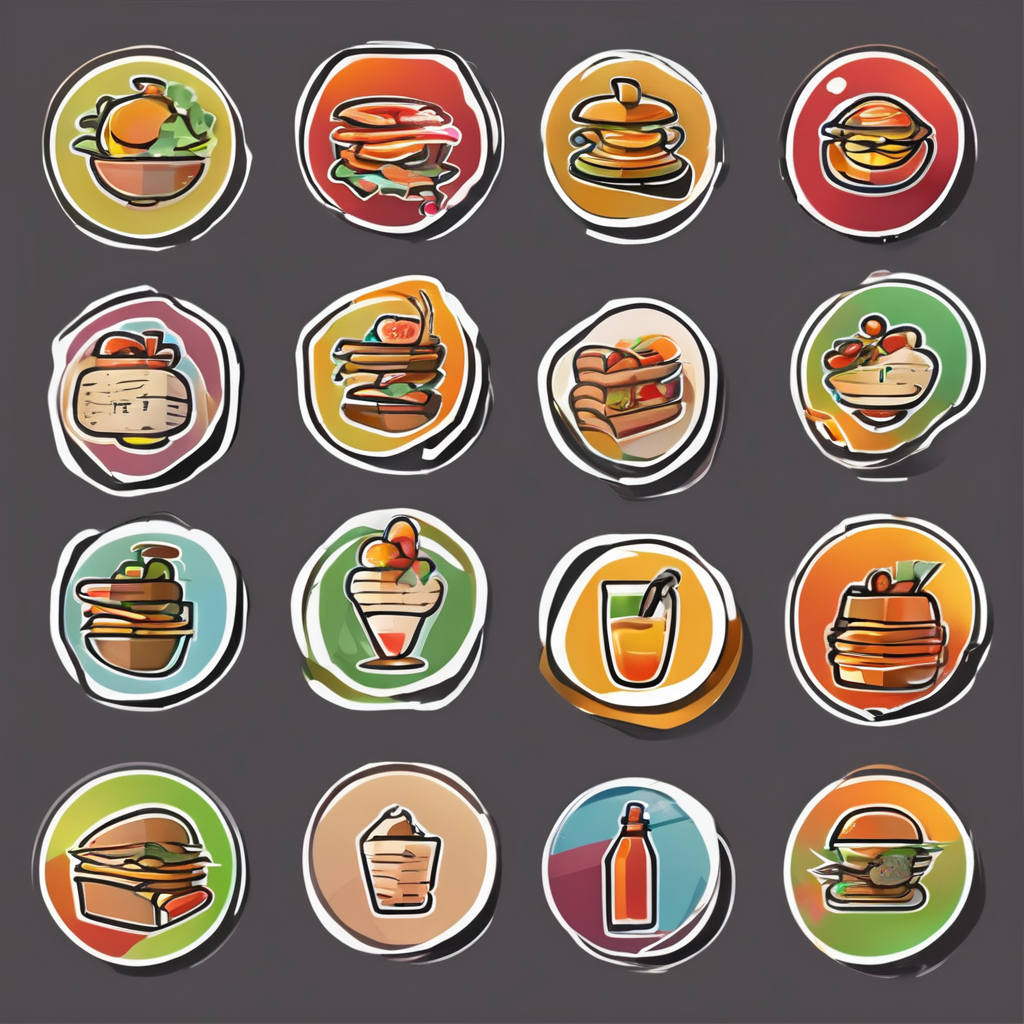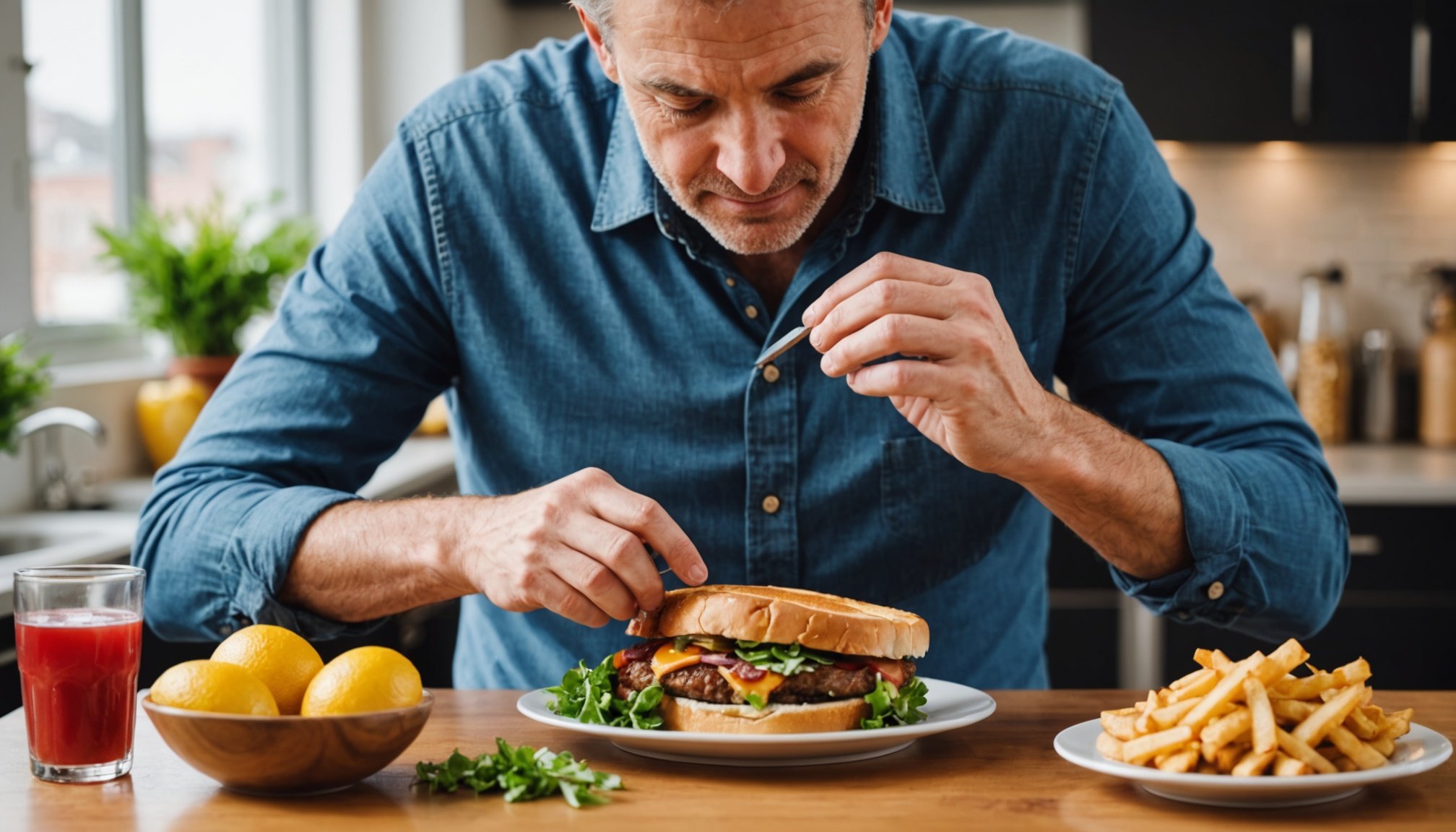Top Foods to Eliminate for Easing Irritable Bowel Syndrome Symptoms
Irritable Bowel Syndrome (IBS) is a common gastrointestinal disorder that affects millions of people worldwide, causing a range of uncomfortable and often debilitating symptoms. While there is no cure for IBS, managing the condition often involves significant changes to one’s diet. Here, we will explore the top foods to eliminate or reduce in your diet to help ease IBS symptoms.
Understanding IBS and Its Symptoms
Before diving into the foods to avoid, it’s essential to understand what IBS is and how it affects the body. IBS is characterized by recurring abdominal pain, bloating, gas, and changes in bowel movements, which can manifest as either constipation (IBS-C), diarrhea (IBS-D), or a mix of both (IBS-M).
Also to see : Unlocking Pure Water: The Ultimate Guide to the Best Contaminant Removal Filtration Systems
The Role of Diet in Managing IBS
Diet plays a crucial role in managing IBS symptoms. Certain foods can trigger or exacerbate symptoms, while others can provide relief. Here are some key dietary approaches and foods to consider.
Low FODMAP Diet
One of the most recommended dietary approaches for IBS is the low FODMAP diet. FODMAPs stand for fermentable oligosaccharides, disaccharides, monosaccharides, and polyols. These are types of carbohydrates that can be poorly absorbed by some people, leading to symptoms like bloating, gas, and abdominal pain.
In parallel : The Ultimate Guide to the Best Meditation Techniques for Effective Chronic Anxiety Relief
Foods to Avoid on a Low FODMAP Diet:
- Fructans: Found in wheat, rye, onions, garlic, and legumes.
- Lactose: Found in milk and dairy products.
- Fructose: Found in honey, apples, and high fructose corn syrup.
- Polyols: Found in sugar substitutes like sorbitol, mannitol, xylitol, and maltitol.
Here is a detailed list of high FODMAP foods to avoid:
Vegetables:
- Garlic
- Onions
- Artichoke
- Asparagus
- Leeks
- Mushrooms
- Broccoli
- Brussels sprouts
- Cabbage
- Cauliflower
Fruits:
- Apples
- Pears
- Cherries
- Plums
- Avocados
Dairy:
- Milk
- Soft cheeses like brie and feta
Legumes:
- Beans
- Lentils
- Soybeans
Processed Foods:
- Many processed foods contain high FODMAP ingredients like wheat, dairy, and sugar substitutes.
Gluten-Free Diet
For some people with IBS, a gluten-free diet can be beneficial, especially if they have a sensitivity to gluten or celiac disease. Gluten is a protein found in wheat, barley, and rye.
Foods to Avoid on a Gluten-Free Diet:
- Cereal
- Grains
- Pasta
- Many processed foods that contain gluten.
Foods That Commonly Trigger IBS Symptoms
While the low FODMAP and gluten-free diets are structured approaches, there are several other foods that commonly trigger IBS symptoms across the board.
Carbonated Drinks and Fizzy Beverages
Carbonated drinks, such as soda and sparkling water, can cause bloating and gas, exacerbating IBS symptoms. The carbon dioxide in these drinks can lead to increased gas in the digestive system.
Alcoholic Drinks
Alcohol can worsen IBS symptoms by causing loose stools and indirectly affecting mood and sleep. It is advisable to limit alcohol intake to no more than two units a day and ensure at least two alcohol-free days a week.
Dairy Products
Dairy products, particularly those high in lactose, can trigger symptoms in people with IBS. This is often linked to lactose intolerance, where the body cannot properly digest lactose.
Sugar and Artificial Sweeteners
Certain types of sugar, especially fructose, and artificial sweeteners like sorbitol and xylitol can make IBS symptoms worse. These sugars are not fully absorbed in the small intestine and can be fermented by bacteria in the large intestine, leading to gas and bloating.
Processed Foods
Processed foods often contain large amounts of sugar, chemical additives, and fat, all of which can trigger IBS symptoms. These foods can disrupt the gut microbiome and irritate the gut lining.
Caffeine
Caffeine can speed up the digestive process, worsening diarrhea and abdominal pain in some people with IBS. It is recommended to reduce caffeine intake gradually to avoid withdrawal symptoms.
Fatty Foods
High-fat meals can trigger loose bowel movements due to the gastro-colic reflex, which is more sensitive in people with IBS. Reducing portions of high-fat foods can help manage symptoms.
Spicy Foods
Spicy foods can irritate the lining of the gut and speed up gut transit time, increasing the risk of diarrhea and pain. While not everyone with IBS will react to spicy foods, it is a common trigger for many.
Practical Tips for Managing IBS Through Diet
Here are some practical tips to help you manage IBS symptoms through dietary changes:
Eat Smaller Meals
Eating smaller, more frequent meals can help reduce cramping and diarrhea. This approach can also make digestion easier and less overwhelming for the gut.
Increase Fiber Gradually
For people with IBS-C (constipation-predominant IBS), increasing fiber intake can help soften stool and promote regular bowel movements. However, it is crucial to add fiber gradually to avoid initial bloating and gassiness.
Stay Hydrated
Drinking plenty of water is essential for overall health and can help manage IBS symptoms. Avoid carbonated drinks and opt for plain water or low FODMAP beverages instead.
Consider Probiotics
Probiotic supplements or prebiotics can help alleviate IBS symptoms by improving the gut microbiome. These can reduce abdominal pain, bloating, and irregular bowel movements.
Table: Comparing Common IBS Trigger Foods
| Food Category | Examples | Reason for Avoidance |
|---|---|---|
| Carbonated Drinks | Soda, sparkling water | Causes bloating and gas |
| Alcoholic Drinks | Beer, wine, spirits | Speeds up digestive tract, worsens diarrhea |
| Dairy Products | Milk, cheese | Lactose intolerance, triggers cramping and diarrhea |
| Sugar and Artificial Sweeteners | Fructose, sorbitol, xylitol | Not fully absorbed, leads to gas and bloating |
| Processed Foods | Packaged snacks, processed meats | Contains sugar, additives, and fat that disrupt gut microbiome |
| Caffeine | Coffee, energy drinks | Speeds up digestive process, worsens diarrhea |
| Fatty Foods | Fried foods, high-fat meals | Triggers loose bowel movements due to gastro-colic reflex |
| Spicy Foods | Chili, wasabi | Irritates gut lining, speeds up gut transit time |
| High FODMAP Foods | Onions, garlic, beans, apples | Poorly absorbed carbohydrates, leads to bloating and gas |
Quotes from Experts
- “Our microbiome uses fiber to keep our gut healthy,” says Parastoo Jangouk, MD, a board-certified gastroenterologist. “When you take fiber, your body turns it into short-chain fatty acids, which are the main fuel for our intestinal cells. A diet that’s diverse in plants and fiber is essential to keeping our gut healthy.”
- “Alcoholic drinks can worsen IBS symptoms by causing loose stools and also indirectly by worsening mood and sleep,” says Jackson. “People with IBS should avoid or reduce their intake where possible.”
Managing IBS symptoms through dietary changes can be a highly effective approach. By understanding which foods trigger your symptoms and making informed choices, you can significantly improve your quality of life. Here are some key takeaways:
- Low FODMAP Diet: Avoid foods high in fermentable oligosaccharides, disaccharides, monosaccharides, and polyols.
- Gluten-Free Diet: Consider if you have gluten sensitivity or celiac disease.
- Avoid Common Triggers: Carbonated drinks, alcoholic drinks, dairy products, sugar and artificial sweeteners, processed foods, caffeine, fatty foods, and spicy foods.
- Practical Tips: Eat smaller meals, increase fiber gradually, stay hydrated, and consider probiotics.
By implementing these dietary changes and working with a healthcare provider or nutritionist, you can better manage your IBS symptoms and improve your overall health.











